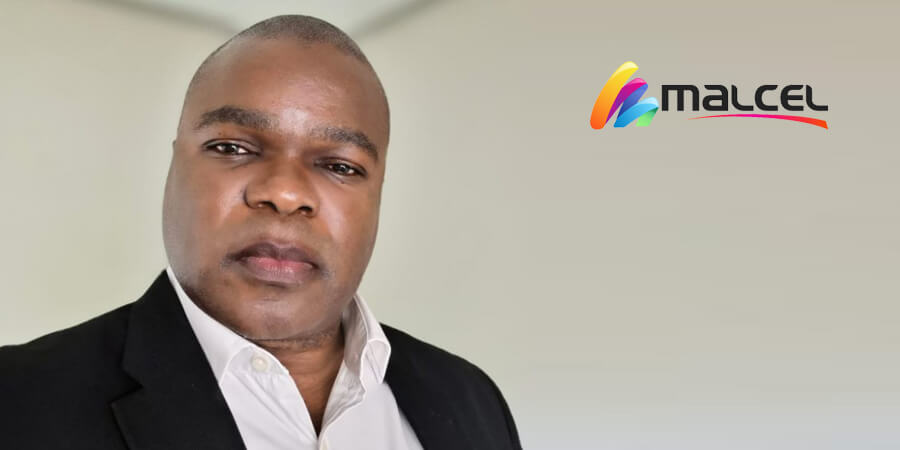Aiming to be Malawi’s first digital network operator with a goal of providing digital solutions to everyday problems for their customers, Malcel, a locally-founded Malawian company, joins five other mobile service providers — TNM, Airtel Malawi, MTL, Access and Nyasa Mobile. Its Chief Executive Officer and founding member, Bonface Ndawala, pledged that Malcel has onboarded a talented team of experts with extensive experience in the mobile service industry.
In an exclusive interview with Telecom Review Africa, Ndawala talks further about Malcel’s expertise and what it is promising to bring to the market.
Why did you opt to bid for a new license in Malawi specifically?
Malawi is probably the only place on the continent where there is still a healthy opportunity for growth. With mobile penetration at less than 50%, if you take out multisimmers, there is a good prospect for growth in voice, and with data penetration at less than 20%, there is a massive opportunity for data growth. With financial inclusion at less than 20%, there is lots of scope for growth, and with only two meaningful operators, there is room for a third operator to come in. Additionally, Malawi has a young population where its majority is below the age of 25, so there is a big market for the masses for those who can see it.
What is Malcel promising to bring to the telecom market there?
Malcel will bring state-of-the-art technology to Malawi. We will deploy 5G in cities and 4G LTE in suburban areas. We intend to roll out 1,300 sites in five years. With that, we will match the two incumbents, and then we will compete on service. We are also coming into the market as a solution-based digital network provider; we intend to bring lots of solutions to people’s everyday problems.
Can you tell us more about the team that will deliver this rollout and their experience in this field?
The team that is delivering the rollout are all veterans in the telecoms space, mostly ex-Celtel and Zain. We know the market very well; we know the industry very well; and we each have at least 20 years of experience in telecoms, not only in Malawi but also in Africa. I have had the privilege of working in 10 different markets over the past 22 years, including big players like Celtel/Zain, Globacom and Cell C. Davie Huwa, our CTO, is the man that built the Celtel Malawi network from the ground up, so we know what we are doing here.
Can you elaborate on Malcel’s long-term ambitions for Malawi?
Malcel’s long-term ambition is to be the biggest fintech firm in Malawi, and we intend to eventually be listed on the Malawi stock exchange and potentially other regional stock exchanges as well. We intend to be the go-to solution provider for Malawi and to have an impact on our society — not only in telecoms but also beyond.
Growth and development need partnerships. Who are Malcel’s allies in their journey?
Our major partners in this endeavour are Huawei; Digital Infrastructure Holdings (DIH) through their Tower Vertical Tasc Towers; Seamless Distribution Systems for our distribution; and Oracle for our ERP solutions and IT infrastructure.
What should Malawi expect from you in the short and long term?
Malawi should expect something very special from Malcel. We will deploy a brand-new, robust network with clear voice calls, fast data speeds, fair pricing of our services and, above all, a beautiful customer experience. We believe that what will sell is the experience that customers have on our network. In the long term, Malawians should expect innovation and solutions that will address their everyday needs. We intend to be a relevant provider of services to the population.
Can you tell us about the challenges you've faced over the years, particularly with COVID-19, and how you were able to overcome them?
We are a new player, so we really haven’t faced too many challenges apart from the challenges of COVID ravaging the livelihoods of our potential customers. However, COVID has brought about opportunities as well; for instance, it has shown that work can be done remotely. It has also accelerated the masses' acceptance of digital distribution, which is what we will use. We will not deploy any physical scratch cards on the market — instead, just airtime-distributed, digitally serviceable devices.






